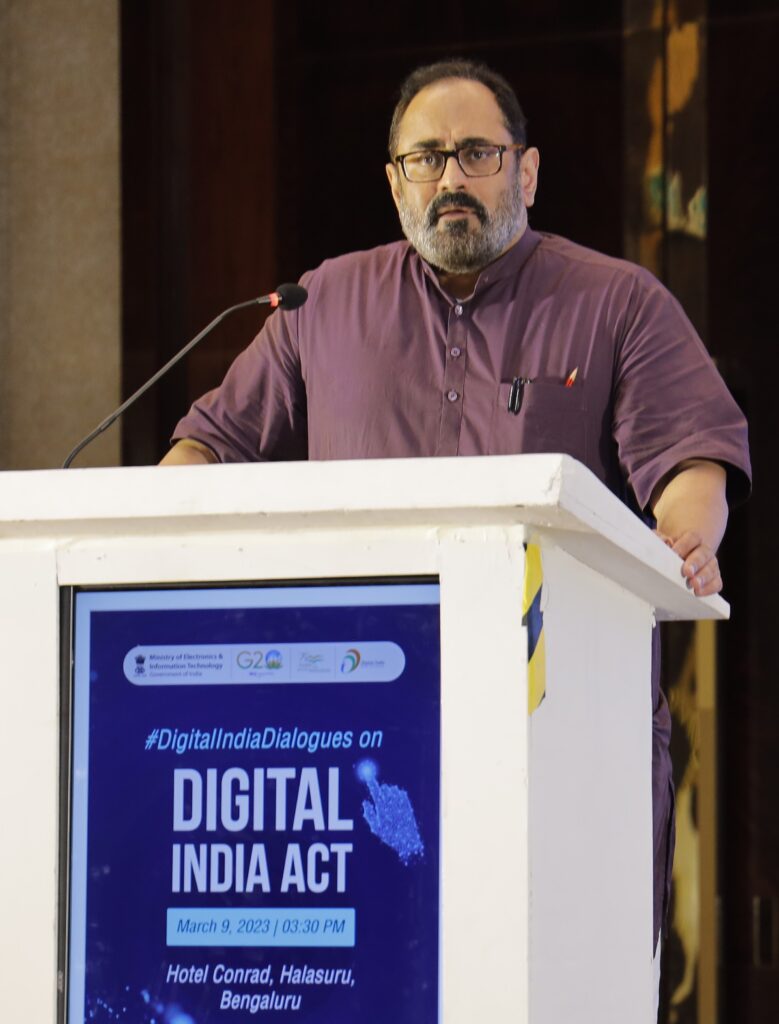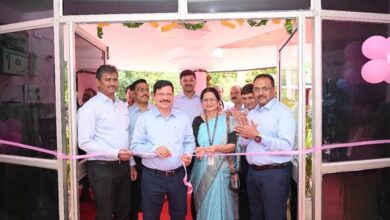MoS Rajeev Chandrasekhar Holds Consultations With Stakeholders On Proposed Digital India Bill
For the first time, Design, Architecture and Goals of a Bill are being discussed with stakeholders at its pre-introduction stage

Union Minister of State for Skill Development & Entrepreneurship and Electronics & IT Shri Rajeev Chandrasekhar has held consultations with stakeholders on soon-to-be introduced Digital India Bill – a future ready legislation that aims to catalyse India’s ambition of being in the leading pack of nations that would shape the future technologies.
For the first time design, architecture and goals of a Bill are being discussed with stakeholders at its pre-introduction stage. These consultations are part of the Digital India Dialogues, in line with Prime Minister Shri Narendra Modi’s consultative approach to law and policy making.
Making a presentation on the objectives and goals of the Bill, Shri Rajeev Chandrasekhar said the proposed Bill aims to help India achieve the goal of becoming a trillion-dollar digital economy and be a significant trusted player in the Global Value Chains for digital products, devices, platforms and solutions.
Shri Rajeev Chandrasekhar said that the proposed Digital India Act aims to help develop India as a globally competitive innovation and entrepreneurial ecosystem while at the same time protecting the rights of its citizens.

Stating that the tech ecosystem in general and Internet in particular has evolved significantly after Information Technology Act (IT Act) came into being in 2000, Shri Rajeev Chandrasekhar said that the new law has to be evolvable and consistent with changing market trends, disruption in technologies, and keep in mind protection of digital nagriks from user harm.
“Internet that began as a force of good has today become vulnerable to various types of complex user harms like catfishing, cyber stalking, cyber trolling, gaslighting, phishing, revenge porn, cyber-flashing, dark web, women and children, defamation, cyber-bullying, doxing, salami slicing, etc and there is an urgent need for a specialised and dedicated adjudicatory mechanism for online civil and criminal offences,” the Minister observed.
Reiterating that the DIB is an attempt by the Government to bring in global standard cyber laws, Shri Rajeev Chandrasekhar said, “We want to ensure the Internet is Open, Safe, Trusted & Accountable and accelerate the growth of innovation and technology and create a framework for accelerating digitalisation of Government and to strengthen democracy and governance.”
Shri Rajeev Chandrasekhar thereafter listed down some of the guiding principles for the proposed legislation, which include managing the complexities of internet and rapid expansion of the types of intermediaries addressing the risks of emerging technologies, protecting citizen rights, managing and setting guardrails for the varied intermediaries on the internet.
The Minister also spoke of promoting free market access and fair-trade practices and ease of doing business and ease of compliance for Startups and delivery of public services through online and mobile platforms in a simple, accessible, interoperable and citizen friendly manner in the same thread. Terming the bill as future ready, Shri Rajeev Chandrasekhar said, “The new law should evolve through rules that can be updated and address the tenets of Digital India and designed on a principles & rule-based approach’ to regulation.”
The proposed law, in addition to many aspects of the digital ecosystem, will deal in detail with the question of user harm on the internet. Shri Rajeev Chandrasekhar said, “The internet can be a responsible space and illegal content certainly does not find any place on the Indian internet.”
After the minister’s presentation, he had an interactive discussion with the various stakeholders who included industry representatives, lawyers, Intermediaries, consumer groups amongst others and invited their inputs on it.




